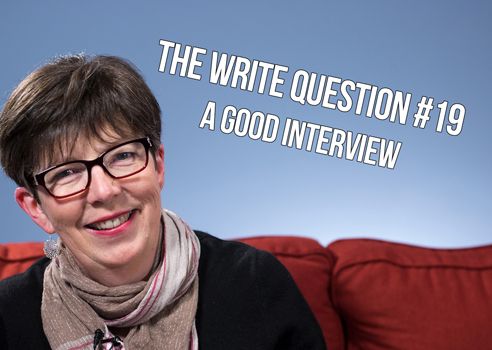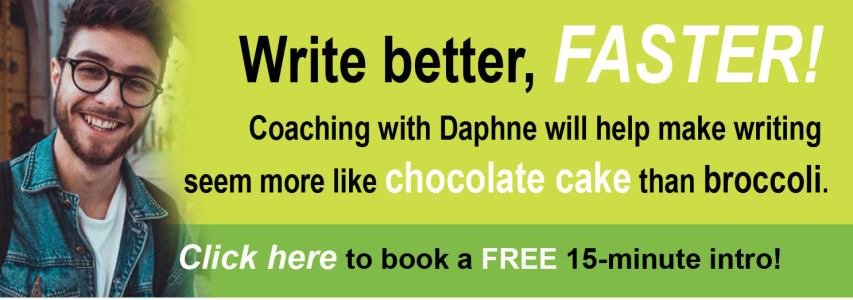Viewing time: 3 minutes 43 seconds
The Write Question is a weekly video podcast about writing that I started in 2017 and that ran, more or less weekly, until April 2022. This is a republication of issue #19, addressing how to be a good interview subject. The post first ran on June 2/17.
Transcript
Welcome to The Write Question, the video-podcast designed to answer your questions about writing. I’m Daphne Gray-Grant.
Today I have a question from Petruta Bunaciu, a research associate at Cornell University. I’ll let her put it in her own words:
[Recording:] In question #12, you cite Barbara Walters: “when you interviewing someone, you are in control. When you are being interviewed, you think you are in control but you are not.” Do you have any tips for us, especially people working in science, for situations when we are being interviewed and we are not sure if the audience knows all the background needed to understand what we are trying to say? Do you have any techniques — similar to mindmapping — for spontaneous speaking when we’re asked a question? Thank you very much.
Thanks for the question, Petruta. If you’re lucky enough to get asked for an interview, here’s what I suggest you do.
First, before you do anything else, think about what your interviewer NEEDS. And, to do this, you must consider their audience. For example, if the interviewer is from a scientific publication, they’re going to want data and evidence and they’ll likely be able to understand most of the technical terms you’ll want to use.
But if your interviewer is from a mainstream publication, like a daily newspaper, their needs are going to be very different. They’ll be looking for information presented in a way that you might consider “dumbed down.” Although that’s probably not the best phrase to use with them! Just think about how you can present your information in a way that will be easy for them — and their audience — to understand.
You might even ask your interviewer for a sense of the kinds of questions they’re going to want to ask you, so you can be better prepared. There is nothing wrong with asking for this kind of info upfront and most interviewers will probably appreciate it if you do.
The next thing you should do is think of some stories and examples you can tell. Most interviewers LOVE stories, mainly because their readers love stories. But you’ll help yourself if you can think of some of these in advance. Think back to whatever you’re being interviewed about. Was there a time when you felt either strongly discouraged OR enthusiastic about something that happened? Strong emotions are usually a sign of an interesting story.
Did you ever have an interesting or encouraging encounter with a colleague or boss about something? Did a member of the public have strong views about something you did? Did some aspect of your personal life influence any of the decisions you made in your professional one? I know all of these questions don’t seem very scientific but they add a human element to your work and that’s what many mainstream interviewers will want to explore.
If you are the least bit nervous, I also suggest that you identify three key messages you want to communicate. This will help you establish some control over the interview. Just keep reminding yourself of the points YOU want to make and keep returning to them.
Let me give you one small warning though, that I remember from my own days as a journalist. Know that an interview is NEVER over until the other person has left the room. Any comment you make, no matter how informal or casual it seems, might be used. So be friendly but don’t get into an idle chit chat with your interviewer, unless you’re happy seeing those words in print.
Finally, let me wrap up with a quote from the late actor Katherine Hepburn. “Death will be a great relief. No more interviews.”
Thanks for your question, Petruta. Good luck with your next interview.
Thanks so much for watching. If YOU have a question, you can email, tweet, or skype me. You can find the details in the description below along with any resources I’ve mentioned. And don’t forget to like and subscribe to the video.
Links
How to learn from your (bad) media interviews


